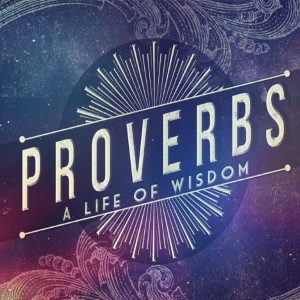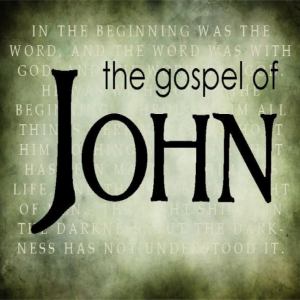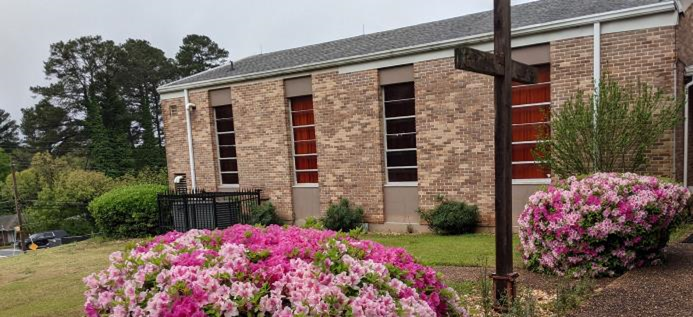Episodes

Tuesday Nov 26, 2019

Tuesday Nov 19, 2019
11-17-19 Kevin Goins - Wisdom is Fabulous! Part 3
Tuesday Nov 19, 2019
Tuesday Nov 19, 2019
“Wisdom is Fabulous!” (Pt 3)
Proverbs 3:27-35
People seek many things in our world today, but very few seem to be seeking wisdom. This is why the author of Proverbs wants us to know just how fabulous wisdom is.
I First, wisdom is worth the effort and we should seek it with all our heart (3:13-18).
II Second, wisdom is so good that even God uses it (3:19-20).
III Third, wisdom can guard our life (3:21-26).
IV Fourth, wisdom is d____________. Here Solomon gives us four principles that we can follow to put wisdom to _______ in our lives today:
A. Principle #1: Do ________ to people _____________ you can (3:27-28).
-But there are ______ conditions:
1. First, “do not withhold good from those who d___________ it.
2. Second, “do not withhold good when it is in your _________ to act.”
B. Principle #2: Do not b___________ the one who t_________ you (3:29-30).
1. A better translation is: “Don’t devise _________ against someone who lives in __________ with you.”
2. Not only should we be careful not to h__________ those who trust us, but we should not f___________ accuse anyone of hurting us.
C. Principle #3: Do not envy those who get what they want by unethical means (3:31-32).
1. “Don’t envy them,” Solomon says, “because even if they get what they want, they won’t k_________ it for l_______.”
2. People who cheat, steal, lie, and use violence to get what they want make God ___________.
D. Principle #4: S_______ wisdom and do not act like a __________ (3:33-35).
1. First contrast: “The Lord’s c_______ is on the house of the wicked, but he b_________ the home of the righteous” (3:33).
2. Second contrast: “He _______ proud mockers, but gives _______ to the humble” (3:34).
3. Third contrast: “The wise inherit h__________, but fools he holds up to s__________” (3:35).

Wednesday Nov 13, 2019
11-10-19 Paul Gieschen - Living Water vs. Broken Cisterns
Wednesday Nov 13, 2019
Wednesday Nov 13, 2019
Truths from Jeremiah, Chapter 2
“Living Water vs. Broken Cisterns”
Chapter one of Jeremiah describes his call as an individual to serve the Lord. Then, in chapter 2, we see a clear call to repentance of a people, the people of Israel. It is a touching chapter of God’s love, and the consequences of the self-centeredness of a people. It is also a profound check list of warnings that we must take to heart as individuals, as the church, and as a nation.
In verses 1-3, God is talking about our first l_____ .
Verses 5-8 tells us they became s_________ and found f____ with God.
The crux of the whole chapter and even most of the book of Jeremiah, is in verse 13. “My people have committed two sins: they have forsaken me, the spring of l , and have dug their own c_________, broken cisterns that cannot hold water.
God, as the H_______ S__________, is the Living Water.
Sins, decisions to do what we want in the way we want instead of God’s way, are like a h__________ that breaks the cistern.
Hosea 9:10b says we become v________ as the things we love. I______ are the things we love more than God. What is it that we l_________ ?
With relatively few exceptions, problems and their consequences are o____ f_________ .
Here is a check list for how well we are doing in keeping our cisterns full and flowing with the living water.
1. Are you still in awe of God?
2. Are you still fully yoked with Jesus?
3. Are you honest with God or making excuses for your actions?
4. Are you forgetting or ignoring the lessons God has taught through past punishments or consequences?
5. Do you feel free to roam, to dabble, to sample the world’s offerings?
What is your choice today?

Tuesday Sep 03, 2019
09-01-19 Kevin Goins - Celebrating Work
Tuesday Sep 03, 2019
Tuesday Sep 03, 2019
“Celebrating work?” Genesis chapters one and two
If you want to know the Bible’s position on work, all you have to do is to open the very first page. But what does the Bible tell us about work that will help us have a greater appreciation for the labor we do?
I It tells us that work is a _______ thing – work belongs to the very n__________ and c______________ of God.
A. The most basic definition of work is to __________ something, and the first verse of the Bible says that God ___________, he brought into existence, this world.
B. When we see ______ God created, we see how much our work is ________ his work.
C. Every good and honest job today finds its b__________ in the work of God.
II This text tells us that God wants us to _______ him in doing work.
A. B_________ sin invaded human life, God gave Adam and Eve work to do.
B. Work wasn’t the result of sin; work was God’s p__________ plan for the human race.
C. Some have the idea that heaven will be the kind of paradise where no one works, but a paradise without work w_______ n_____ be paradise.
D. Since work belongs to the nature and character of God, and since hell is devoid of God’s character, then hell must be a place ___________ work.
III This text tells us that God does not take work to an u______ e_______.
A. God worked six days and then he rested, and that is the p________ that we are to follow.
B. We must balance work and _________; we must balance work and ________; we must balance work and ___________.
IV This text tells us that work can bring us the a___________ of God (Genesis 1:4, 10, 12, 18, 21, 25, 31).

Tuesday Jul 23, 2019
07-21-19 - Kevin Goins - Confrontation, conclusion
Tuesday Jul 23, 2019
Tuesday Jul 23, 2019
“Confrontation!” (Conclusion) John 8:13-20
Thus far in our study of confrontation in John 8 we have seen five principles which can guide us when we need to confront someone. Today we look at the last two principles.
I The first principle is this: Confrontation should only take place when there is a real reason for it (8:13).
II The second principle: Confrontation must overcome ignorance (8:14).
III The third principle: Confrontation must make the truth known w/o condemnation (8:15).
IV The fourth principle: Confrontation must never exclude God or God’s Word (8:16).
V The fifth principle: Confrontation, if at all possible, should not be done alone (8:17-18).
VI The sixth principle: Confrontation should be _______ focused on the _______ issue (8:19).
A. The Pharisees think when Jesus says, “my Father” he means his _________ father.
B. For Jesus it is not just about God as an ______ or ____________. For Jesus the issue is this: Do you know God as your __________?
C. We should not confront for ___________ issues and we should not confront for ___________ issues.
D. Confrontation has one primary purpose: to __________ _______________.
VII The final principle: The ________ of confrontation is always in _____ hands (8:20).
A. Think what Jesus was _________ by confronting the Pharisees.
1. He knew they would not ________.
2. He knew they wanted to _______ him.
B. When we confront, we have no idea whether the person we confront will _________ and see the truth, or _________ their eyes.
VIII Let’s think back to that story we started writing in the beginning of the message.
A. There are times in our lives when we are a J_______ - there is someone we love who needs to be confronted.
B. There are times in our lives when we are J_______ - we need to be confronted.
C. How we respond, as a Jack or as a Jill, will determine whether we, or the ones we love, experience life as v_______ or d_________.

Sunday May 26, 2019
05-26-19 Kevin Goins - From Gifts to Ministry
Sunday May 26, 2019
Sunday May 26, 2019
“From Gifts to Ministry” Acts 6:1-7
Recently we have been talking about spiritual gifts and how to discover which gift is ours. But how does God take gifted people and motivate them to use their gifts for ministry? That is the focus of our text today.
I This text is about taking gifted people in the church and placing them in positions of m___________ where they can serve. And it shows us the four ___’s God provides to make this happen.
II What does God give us to motivate us to use our gifts in the church?
A. First, God provides us with p_______________ (6:1).
1. There were _____ kinds of Jewish believers in the early church because there were _____ kinds of Jews: (1) H____________ Jews and (2) G_______________ Jews.
The Grecian Jewish widows who had become believers in Jesus had the church to help them, but they believed they were not being treated f__________.
3. There will be problems in using our gifts, but problems are God’s
provision for us because problems often l_______ us on to the next l_________ of ministry.
B. Second God provides us with a p____________ (6:2-4).
1. Helping the widows would have been a good thing for the Apostles to do, but the g_____ can be the enemy of the b_______.
2. God’s plan for the church is not just that Pastors should preach and pray, but that church members should use their gifts to do ____________ ________.
C. Third, God provides us with p_______________ (6:5-6).
-The early church teaches us that when you have a ministry need, you find the people to meet that need in the __________.
D. Fourth, God provides us with p_____________ (6:7).

Tuesday May 07, 2019
05-05-19 Kevin Goins - Gifts
Tuesday May 07, 2019
Tuesday May 07, 2019
“Gifts” 1 Corinthians 12:1-7
God has called us to do the work of enlarging his Kingdom in this world, but does he expect us to do this work armed only with our own natural human abilities? Our text today says, “NO!” God has gifted us to do his work, but what do we need to do to use our spiritual gifts?
I. We need to ________ what the Bible teaches about spiritual gifts (12:1).
A. We Christians would be insulted if anyone called us a__________, but when it comes to spiritual gifts, many Christians _____ agnostics.
B. If we have no interest in using the ______ God has given us, it likely means we have no interest in doing the _________ God has given us.
II. We need to know ________ these gifts come from (12:2-3).
A. We cannot experience the gifts _____ the Holy Spirit until we have first experienced the gift _____ the Holy Spirit.
B. Paul says that having the ________ of every gift is better than having ____ particular gift.
C. Since the Holy Spirit is the source of all gifts, then ______ we use that gift will have to be in keeping with _______ the Holy Spirit ministers.
III. We must not be ________________ (12:4-6).
IV. We must not _________ that we have a gift (12:7).
A Paul says two things in verse seven: First, ___________ has a gift.
1. But how are you supposed to know what your gifts are?
a. First, we need to read how the ________ describes the gifts and compare that to our __________.
b. We need to ______ God.
c. There are questions we can ask which will help to reveal our gifts.
1. What things that need to be done in the church come n___________ to me?
2. What abilities do I have which could be p_____ to u____ in the church?
3. What ministries of the church really e__________ me?
4. What have I done for the church that has made me feel f__________?
2. Being gifted in one area does not give us a free pass to __________ every other area of ministry – N_______ take precedence over g____!
B. The second point Paul makes in verse 7 is that gifts are given for the c_________ g_________.

Tuesday Mar 19, 2019

Sunday Mar 10, 2019
03-10-19 Kevin Goins - The Attitude of Prayer
Sunday Mar 10, 2019
Sunday Mar 10, 2019
“The Attitude of Prayer” Luke 18:9-14
We have talked about the “How” of prayer and the “Wow” of prayer, but there is something that is often overlooked and that is the attitude we bring to our prayer. Jesus tells a parable in Luke chapter eighteen which shows us the kind of attitude we need to have when we pray.
I Luke chapter 18 is about __________ and it begins with two parables.
A. The first parable is about how d___________ we should be when we pray. The second parable is about the a___________ we should have when we pray.
B. The parable is composed of _____ parts:
1. We hear a p________ r___________ man talk to God.
2. We hear a tax-collector talk to God in a very d__________ way.
3. We hear Jesus, who knows more about God than anyone, tell us w________ prayer makes it to the throne of God.
II The usual approach to this parable is to do a h_________ job on the Pharisee and his prayer.
A. The crowd who first heard this parable did not have a b______ against the Pharisees like we do.
B. In Jesus’ day there were _______ major religious groups in Judaism:
1. First, there were the E___________.
2. Second, there were the S___________.
3. Third, there were the P_____________.
C. The Pharisees were respected by the people, so when Jesus mentions the Pharisee the crowd would assume he is the _______ example.
III To hear this parable the way the first audience heard it, we must see the Pharisees as they did, as h_________. But then Jesus shocks us by showing us _______ problems this Pharisee had in his relationship with God:
A. First, the Pharisee had a problem with c____________ - his confidence was in __________ (18:11a).
B. Second, the Pharisee had a problem with _____________ - he was _____ of it (18:11b).
C. Third, the Pharisee had a problem with ___________ - there wasn’t _______ in his life (18:12).

Tuesday Mar 05, 2019
03-03-19 Kevin Goins - The Desire to Pray, conclusion
Tuesday Mar 05, 2019
Tuesday Mar 05, 2019
“The Desire to Pray” (conclusion)
Matthew 6:5-13
It takes more to pray than simply knowing how to do it. Something else is required and what is required is desire. Why should we desire to pray? Our text tells us. We should love to pray:
I ... because prayer grows our relationship with God (6:5-6).
II ...because it’s is the most natural thing we can do (6:7-8).
III ... because prayer reminds us of our true significance (6:9)
IV ... because prayer puts us in touch with the power than can bring
honor to God’s name (6:9b).
V ... because prayer advances God’s Kingdom (6:10a).
VI ... because real prayer has a terrific safety mechanism (6:10b).
VII We should love to pray because prayer puts us in touch with the one who can meet all our p__________ needs (6:11).
We don’t think in terms of daily needs because we are so wealthy we do not have to live from _____ to _____.
B. Jesus emphasized “daily bread” because he got his
understanding of prayer from the _____ __________.
1. First, there is the teaching of P_________ ____.
Second, there is the teaching of E__________ ___.
C. Money ____ provide security and money ____ buy
happiness and that is the p___________.
VIII We should love to pray because prayer puts us in touch with the one who can meet all our r_______________ needs (6:12).
Before Adam sinned, Eve was his wife, but after he sinned, she
became “t_____ w_________.”
B. Sin doesn’t just separate us from ______, it hurts _____ our
relationships.
IX We should love to pray because prayer puts us in touch with the one who can meet all our s____________ needs (6:13).
A. This request is not about temptation, it’s about the ________ of temptation and how we can a________ that place.
B. Prayer brings us to the best place we can possible be when it comes to temptation, and that is in ________ _____________.

